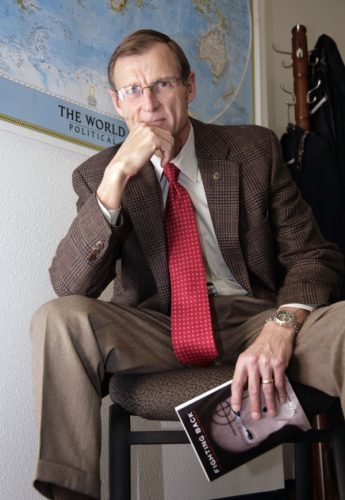Written by one of the most prolific authors in the United States, A More Perfect Union is written in a mesmerizing style that keeps the readers’ eyes glued to the pages and their souls bonded to the characters.
After retiring from his forty years of traveling for the U.S. government, and becoming a NAVY SEAL for over half that time, Paul Shemella, the author, lives in California with his wife. His book, A More Perfect Union, is the sequel to Jungle Rules in 2018.
His books are known for their magical way of utilizing themes such as terrorism, counter-terrorism, maritime, and security around the world. A More Perfect Union in particular is a book that tells the story of an unexpected undercover CI who was pushed to limits. Together with her late husband’s closest friend, they infiltrate the suspected gang in order to gather evidence for the FBI to arrest the group.
Let’s witness this exclusive interview about his books, outlook on life, snippets of his personal life, and upcoming publications.
More of the author’s work is in the making. Whether you are a fan of Paul Shemella’s books or simply just someone who reads for entertainment, look no further.
What do you love most about writing books that are themed heavily on terrorism, or counter-terrorism?
Given my operational and academic background, terrorism was a logical theme for my fiction. I enjoy taking all that experience and creating stories about terrorists and those responsible for taking them down.
How long did it take you to write your books?
Each novel took about eighteen months to complete. I write for a few hours every day until I have a good first draft. Then I revise the draft. After that, I send it out to trusted friends with specialized knowledge and good editing skills. Then I revise it again and send it to the professional copy editor. After three rounds of copy editing, I go through it again, making some minor changes. Then I send it to the publisher.
Do you think being a former Navy Seal and having an experience in the military shaped the theme of your books?
Definitely. Without the operational and academic experience, I would have no way of developing the characters properly or weaving the action-packed plots.
What should your readers expect about your main characters’ strengths, weaknesses, limitations, personality traits, goals, and motivation, particularly Gaby and Jerry?
I wanted to portray extraordinary heroism in realistic operational scenarios. My good-guys have flaws and limitations, but they are all focused on getting the mission done. My bad guys are just bad.
The heroes would not be heroes without fear; they are afraid but do not hesitate to put their lives at risk. Gaby is a scholar who is forced to become a warrior. Jerry teaches her what she needs to know. She, in turn, brings out Jerry’s soft side. He’s a closet academic who finally has someone with whom to share his love of literature and poetry. At the end of the story, Gaby and Jerry meet halfway; she is a poet-warrior and he is a warrior-poet.
As a skilled and experienced writer, what’s the most challenging part of the writing process?
Remembering who said what to whom and when. It is very challenging to keep your own story straight and make sure the action is sequenced properly and the narrative is consistent. Plot holes lurk everywhere.
Finally, I must remember that I am writing for the general reader who may not understand the technical details of weapons systems.
What do you think are the elements needed when writing plausible characters?
You have to make the reader think the action is happening to them personally. That means creating characters who are relatable to the reader and to each other. My stories play out on two levels; the action expected by readers of the genre, as well as the human qualities of leadership, loyalty, and love.
What inspires your work?
My mother was an amateur writer who instilled in me a love of story-telling. All great writers are good storytellers, but not all good storytellers are great writers. I read a lot of different authors’ books until I settled on a formula that works for me. I am really inspired by my own characters.
They’ve become part of my life. They represent the best of what I hope to be. I don’t want to let them down.
If you were to change anything from the book A More Perfect Union, what would it be?
I would change nothing.
On a scale of 1 to 10, being 1 as the lowest, and 10 as the highest, how would you rate your “A More Perfect Union” novel? And do you think other people would agree?
I would give it a 10, but I am, of course, biased. Almost all the reader reviews are five-star.
Can you share with us your upcoming publications if there are any, and what we should expect?
I have two more books in my head. One story will fill the gap between “The Dictator’s Revenge” and “Jungle Rules” while the other will be the sequel to “A More Perfect Union.”
At the same time, I am trying to get “A More Perfect Union” turned into the first season of a Netflix-type series of three episodes. I have written the screenplays for that. If these are accepted, I will write three episodic screenplays for each of the other two novels.
Get this book on Amazon. Grab your own copy now!




